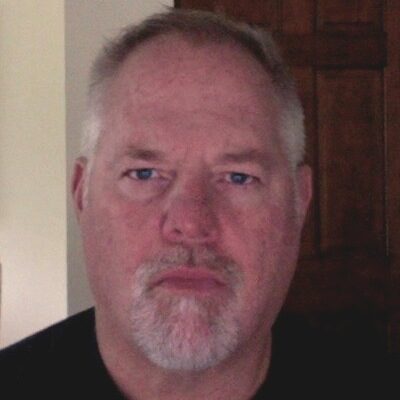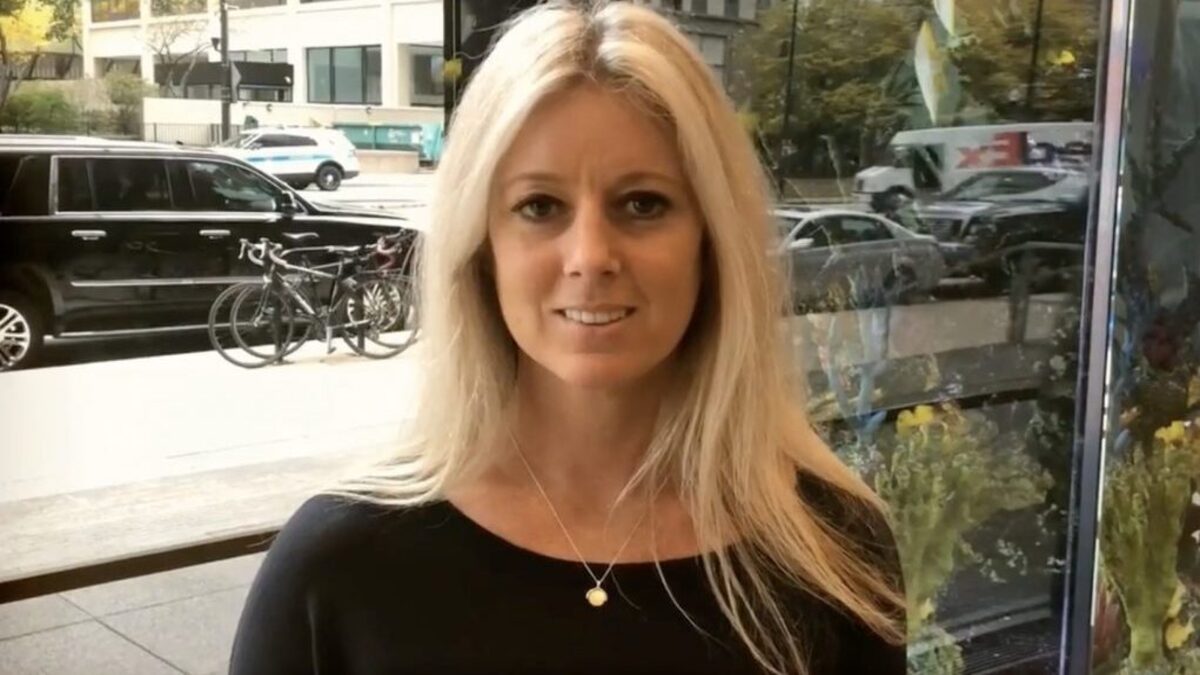Mary Sandberg Boyle started her radio program in her parent’s home when she was ten. She operated with a minimal signal and no license. But, on the upside, she was her boss.
“It was a play radio station,” Boyle jokes. “It was called KMS radio. My sister’s name is Katy, and we used the ‘K’ because she wouldn’t do it if she didn’t get top billing. I was the ‘M’ and ‘S’ for our last name. I’d do the weather, talk up to a song. All she did was dance to songs like, ‘Who Can it Be Now?’”
Boyle is a Chicagoland native and a University of Illinois at Chicago graduate. She is now the vice president and general manager of WGN Radio.
“First, I went to school at St. Mary’s in Winona, Minnesota. I didn’t care for college campus life. It was a bad fit.”
When she came home, she was reminded the University of Illinois-Chicago was close by on Taylor Street.
“In school, I landed a great internship through UIC with a headhunting firm. I was paid good money, and people told me it was a fantastic internship. I was in communications, and I never thought I’d have a career in radio.”
At about the same time, Boyle experienced one of those ‘dream come true’ moments when she got another internship. This time for popular radio host Kevin Matthews.
“I listened only to talk radio growing up, especially Steve Dahl and Kevin Mathews,” Boyle explained. “Then I heard Kevin Matthews was looking for an intern. I couldn’t believe it,” Boyle said. “Watching him work was mesmerizing. But I also had to work the street festivals, which was not as much fun. It was a dream job. Who could think you’d ever get a job like that.”
How quickly things change.
She said the station wasn’t making money, and one day Matthews was gone.
“They flipped formats overnight.”
Boyle wasn’t used to the cutthroat nature of radio. The abruptness of total change.
“I arrived at work and asked Kevin why he wasn’t doing his usual morning prep,” she said. “He told me he’d been fired that morning. Matthews was a hero of mine, and here we were taking pictures off the wall of his office, and I was crying.”
After Matthews was fired, Boyle had bad taste in her mouth about the industry.
“I didn’t know if I wanted to be like some of the people in the radio business.”
After the Matthews’ gig, she worked for a food brokerage company in Lincolnshire. That’s where she learned how diced tomatoes were shipped from California to Chicago.
Boyle bounces back like a Super Ball and has a knack for being in the right place at the right time. In another life-changing moment, her father gave her a buzz on the phone.
“He said he heard on the radio that Steve Dahl was looking for an assistant,” Boyle said. “He asked me if I’d heard what Steve said on the air. I had. I told him I wasn’t going to answer an ad I’d heard on the radio. But he insisted I apply.”
She got the job. What a surprise.
“Coming to work with Steve Dahl was surreal after I’d listened to him for so long.”
Boyle said she enjoyed the way Dahl would talk about something like remodeling his kitchen while he was dieting, and he’d complain. “Of course, he had nothing to really complain about. It was just his on-air topic, and it was hilarious. That’s what made him brilliant.”
Besides being good at his craft, Boyle said Dahl was an excellent businessman and made smart decisions. She said she’s known many people in the business whose ego kept them from making sound decisions.”
“I’m a black and white person. In short, not a lot of fun,” Boyle said. “When I was occasionally on the air with Steve, he’d make a comment to open the conversation. I was too literal. I couldn’t keep it going. Steve called me a ‘bit killer.’”
Surviving Dahl’s possibly good-natured swipe, Boyle was determined to improve. So she signed up for Second City’s writing program.
“I think I was the only person at Second City who had no aspirations of being on stage or on air. I wasn’t a performer. I think it taught me how to take one for the team. Maybe not taking myself so seriously.”
Boyle said she’d worked hard to avoid being pigeon-holed. “Once you’re painted as something, it’s hard to get people to see anything else.”
“Second City taught me if things don’t go well, you have the chance to rebound.” She said if things don’t go as planned, you can make adjustments.
“Even though I was a writer, they made us do improvisational exercises. I didn’t want to be a performer, but they still made us do exercises where you move your mouth in a funny manner. That’s not what I wanted.”
Boyle said they had an unplanned reunion show with Dahl and his former partner Garry Meier, and it was a career highlight. They had a falling out, but both enjoyed successful solo careers.
“We aired from Oak Street Beach during the Air and Water show in 2006, and I thought it was the greatest thing I’d experienced since I’d been in radio.”
Possessing grit and determination, Boyle wasn’t exactly sure what she wanted to do. For a short time, Boyle was a casting director for a film for Vision Films.
“I was somewhat bullied into doing it,” she jokes. “They needed someone who was organized and direct.” She worked at Vision Films during the production of one film. “I also realized the work was intermittent. After one project is complete, there is some downtime, and then you start securing locations for the next project. It’s a tough existence until you work your way up that food chain. I was also working a morning show at the same time.”
In 2015, Boyle joined 720 WGN. She was instrumental in developing and launching a weekday morning business show, “The Opening Bell,” that debuted in 2016.
“I was brought on board to launch a business show. So I became a business expert.”
In addition, Boyle has elevated the station’s newsroom and guided it through the launch of NewsNation, the company’s cable news network, to which the newsroom contributes audio content.
How does she start her day?
In the morning, her first order of business is a workout. Specifically, hot yoga.
“I’m not a fluffy person,” Boyle said. “It’s the only time each day I have a chance to stay away from news and turmoil in the world. It detoxifies you. My workouts are the only part of my day where I feel I have complete control.”
“I used to work morning shows and get up at 2 a.m. So, getting up when I do now is like sleeping in.”
After heat-fused yoga, she’ll scan sources for top stories and potential disasters overnight.
“We’re fortunate to be connected as a company to 200 stations across the country and a national news station, so I have access to copious amounts of information.”
Boyle came up on the programming side, so she’s hyper-aware of what is going out on her air. She believes morning shows are incredibly important on any station.
“Morning shows are on an island, so I feel it’s important to check in with them,” she said. “I think it bolsters confidence to know I’m aware of what they’re doing. I often give them a vote of confidence, and I think that goes a long way. I think it shows you’re part of it. Not all people in my position pay that much attention.”
Highland Park shooting.
“I first heard about it when I was at home with my husband watching Wimbledon,” Boyle said. “He got a text in a group chat that a friend’s relative said there was a shooter at the parade in Highland Park. They thought they heard shots.”
Boyle explained that’s when the news person in her kicked in.
“I talked to my boss, Sean Compton, and our news director, Ryan Burrow. I turned to our partner, WGN television, to see what they had on the air. I live five miles from the shooting scene. First responders were pulled off of other parades to assist. I had people reaching out to me with the assumption I knew more than they did. I didn’t.”
At the station later that day, host Jon Hansen was coming in to host at 2 p.m., and he offered to come in early. “Personally, I know so many people who were at the parade, and we tried to have an accounting of where they were.”
Boyle said you couldn’t be in this business and not be consumed by news. And it can be exhausting.
After a tragedy like Highland Park, she said there’s a fine line between new information and repetition. “That’s where we have to navigate with callers, decide how late into the evening to go with the wall-to-wall coverage.”
“We’re the only live and local station 24 hours a day. It costs money to run a newsroom, but with our television partner, we can tap into their sound.”
She said WGN hosts have great interactions with listeners. The callers shared why the tragedy scared them. Another caller might say they need to do more to prevent future tragedies. Boyle realizes people will have different ideas and opinions but asks callers to remain cordial. WGN Radio is a safe place where people can interact.
In a dream world, she gets to bed at 9:30. Normally; it’s closer to 10:30.
“Next to my bed is The Best of Royko: The Tribune Years.” Mike Royko was a longtime columnist for the Chicago Daily News and the Chicago Sun-Times. Royko was somewhat of a cult figure in Chicago.
“Mike Royko had an amazing personality, and I loved reading the book,” Boyle said. “I loved the take he took on life. He’d talk about simple things, like how a jerk walks across the street.”
And now, KMS radio ends its broadcasting day.

Jim Cryns writes features for Barrett News Media. He has spent time in radio as a reporter for WTMJ, and has served as an author and former writer for the Milwaukee Brewers. To touch base or pick up a copy of his new book: Talk To Me – Profiles on News Talkers and Media Leaders From Top 50 Markets, log on to Amazon or shoot Jim an email at jimcryns3_zhd@indeedemail.com.






